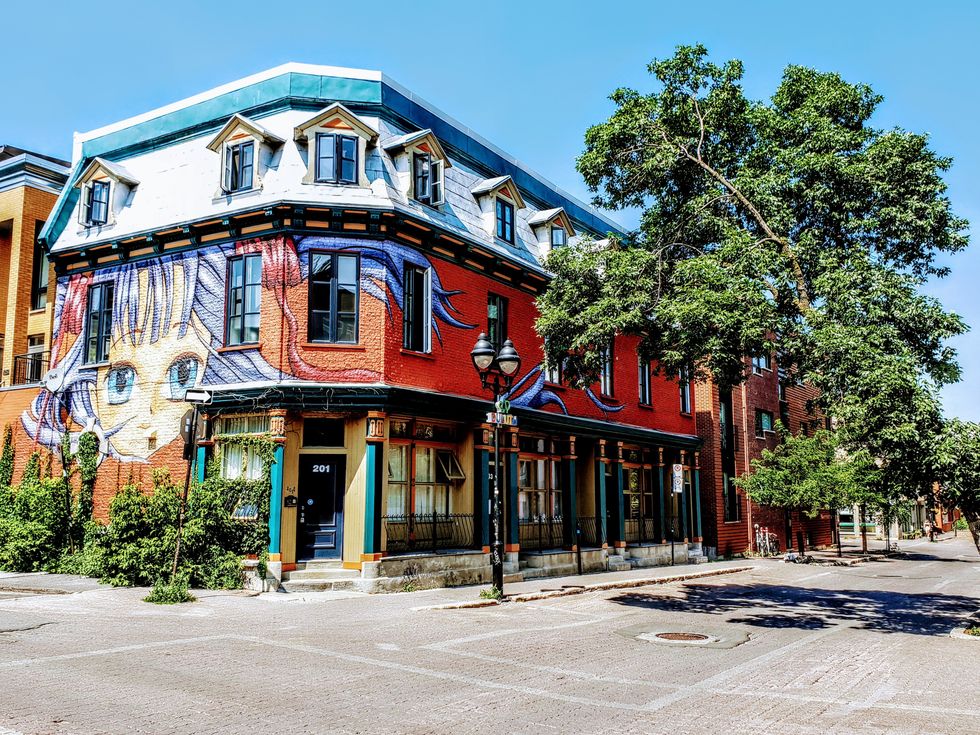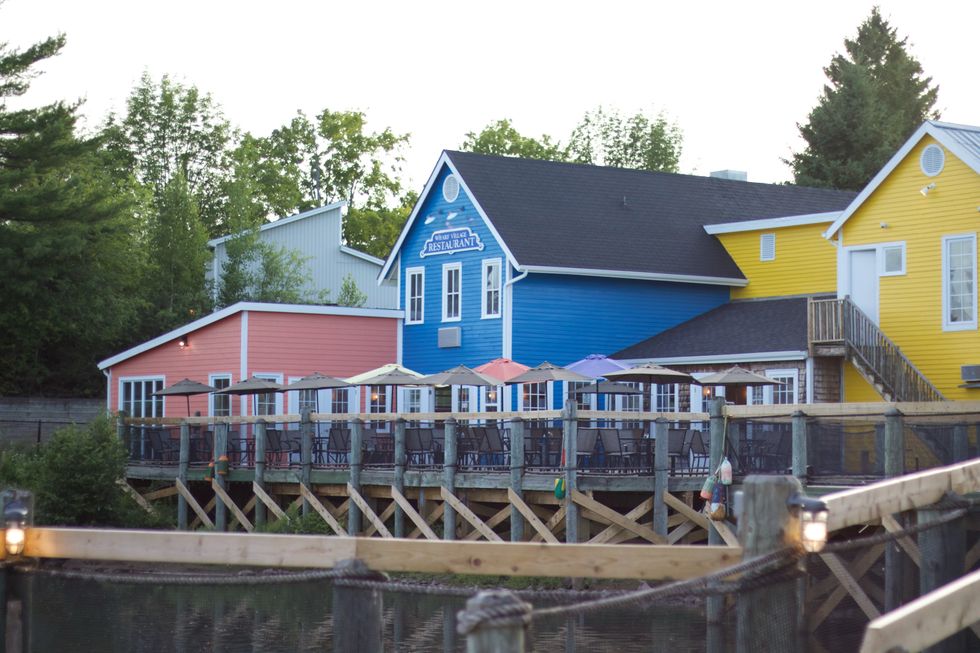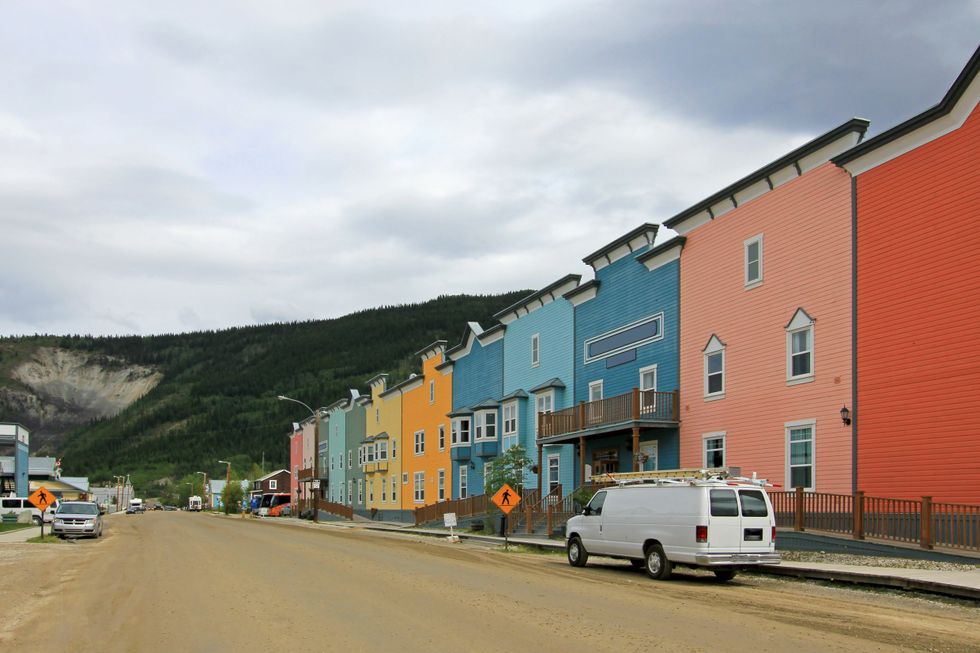Only 1 Province Makes Sellers Declare 'Unnatural Deaths' On Properties & Here's What The Others Say
Would you buy a "haunted" house?
If you've ever thought about buying a home, you've likely considered the obvious things: your ideal square footage, how much storage space you'll need, and how close you want to be to the nearest grocery store.
But what about when things aren't so obvious?
From unnerving histories, criminal associations and spooky happenings to hidden defects, there are countless factors that can influence a buyer's decision to purchase a home — and you might be surprised how little sellers in Canada are legally required to disclose.
The information you can expect all comes down to which province you’re in and which questions you ask. If you want to make sure the seller is telling you everything they know, having a REALTOR® by your side can make sure nothing slips through the cracks.
The industry term for homes that are hard to sell because of an off-putting feature unrelated to the building itself is "a stigmatized property."
So, what do sellers have to tell buyers? These are just some of the laws and rules of thumb that every province or territory follows when it comes to disclosing information around stigmatized homes.
If you’re unsure how this might directly impact you – don’t worry, your REALTOR ® will be able to guide you through the process when the time comes.
British Columbia

In B.C., there's no legal requirement for a property owner or a real estate professional representing a seller to disclose a stigma to a potential buyer.
However, sellers are required by law to provide a Property Condition Disclosure Statement (PCDS) detailing existing problems with the property to the potential buyer. If a seller isn't aware of a problem, you won't find it in the PCDS.Alberta

In Alberta, it's not mandatory for a seller to disclose stigma, however, best practice is to reveal any stigma-related issues anyway.
The Real Estate Council of Alberta (RECA) provides guidance for people buying and selling stigmatized property surrounding how to navigate the situation.
Common law states a seller must disclose latent (hidden) defects known to them or those which should be known to them — things like a broken sewer line, a leaky roof with no water marks, or electrical issues.Saskatchewan

If you're buying a home in Saskatchewan, the seller has a legal obligation to disclose certain defects (like latent defects), but isn't required to disclose "patent" defects — things that are self-evident on a "reasonable" inspection.
In this province, most offers made when purchasing a home note that the buyer is purchasing the home "as is", so it's important to make sure any guarantees made by the seller are documented correctly.
A REALTOR® can help you navigate this process so you don't miss out on the information you need to make an informed decision.
Manitoba

There aren't any obligations to disclose a haunted house in Manitoba, but in Winnipeg specifically, REALTORS® are no longer allowed to disclose in listings if the home was used to grow cannabis.
The rule came into effect in 2018, the same year the Government of Canada legalized recreational marijuana.
This is to protect privacy and prevent defamation, but it also makes it harder to know if your dream home may have had a past life as a grow-op.
Ontario

If you're browsing for a home in Ontario, don't expect to get any information directly from the seller about anything negative that might have happened in or around the property.
Since stigma is a matter of perspective, the Real Estate Council of Ontario (RECO) and the Ontario Real Estate Association (OREA) recommend buyers share their feelings about stigmatized properties with their REALTORS® to help them act with their best interest in mind.
If you're buying in Ontario and have any concerns about a property's history, this is a question to bring to your REALTOR®. They can help you figure out exactly what you will and won't be okay with when it comes to a property's past and help find you the perfect match.
Quebec

Quebec, arguably, has the most thorough laws when it comes to stigmatized properties.
La Belle Province not only requires sellers and their listing agents to declare "unnatural deaths," but they’re also the only province requiring REALTORS® to disclose the "presence of an unexplained phenomenon."
These rules are enforced by the Organisme d'autoréglementation du courtage immobilier du Québec (OACIQ), which also requires a home's known drug history to be disclosed.
However, if the home is "for sale by owner" (FSBO) and not listed on a Multiple Listing Service ® (MLS®) System, sellers are under no obligation to mention deaths. They are, however, still obligated to answer buyers’ questions truthfully.
New Brunswick

Residential Property Disclosure Statements (RPDS) aren't required in New Brunswick, but are recommended. If a seller agrees to fill one out, they are only required to disclose latent defects (the issues you can’t see), which could make the property dangerous or unfit to live in.
Your REALTOR® can request an RPDS from the seller so you'll receive the information you need about repairs, upgrades and any known issues you may need to fix before moving in.
Newfoundland & Labrador

Like most other Canadian provinces and territories, a seller in Newfoundland and Labrador is obligated to disclose material issues affecting property but not stigmas.
If there are any serious issues that could materially affect the sale price or influence your decision whether or not to buy the home, they need to let you know.
If a seller intentionally withholds information that could negatively impact the desirability of a property, buyers may be able to take legal action.
Nova Scotia

While sellers in Nova Scotia aren’t legally bound to disclose stigmas, the Nova Scotia Real Estate Commission recommends buyers be up-front and ask any questions they have if they're concerned about issues relating to stigmas.
You can avoid unpleasant surprises with a REALTOR® by your side to double-check everything before you make an offer.
If you do receive an RPDS from a seller in Nova Scotia (or elsewhere in Canada), keep in mind that the seller can only disclose issues they know about.
Prince Edward Island

If a property is sold in P.E.I. without a PCDS, it’s sold "as is, where is,” according to the Prince Edward Island Real Estate Association — but latent defects must be disclosed before purchase.
You always can (and it's recommended to) have an inspection before buying a home, and your REALTOR® can help you find a trusted professional.
Yukon, Nunavut & the Northwest Territories

Martin Schneiter | Dreamstime.com
When it comes to Canada’s territories, they pretty much all follow suit.
The general rule of thumb surrounding home purchase in Yukon, Nunavut and the Northwest Territories is to properly document all important information about the condition of the property before closing the sale.
In short, the rules and regulations vary greatly across Canada's provinces and territories, and it’s always a good idea to have an expert in your corner.
You can make sure you’re getting all the information you need by contacting a REALTOR® early on in your home-buying journey.
REALTORS® know the home-buying journey is a difficult one to navigate — especially if it’s your first time — and they can help get you through it seamlessly.
They’ll work alongside you as your ally and guide you through the negotiations, legal jargon and paperwork to make sure you get the best end result: your dream home.
Find a REALTOR® or learn more by visiting REALTOR.ca. You can also follow REALTOR.ca on Facebook, Instagram, Twitter and Pinterest.
This content is for general informational purposes only and does not constitute financial, investment, legal, tax or accounting advice.
